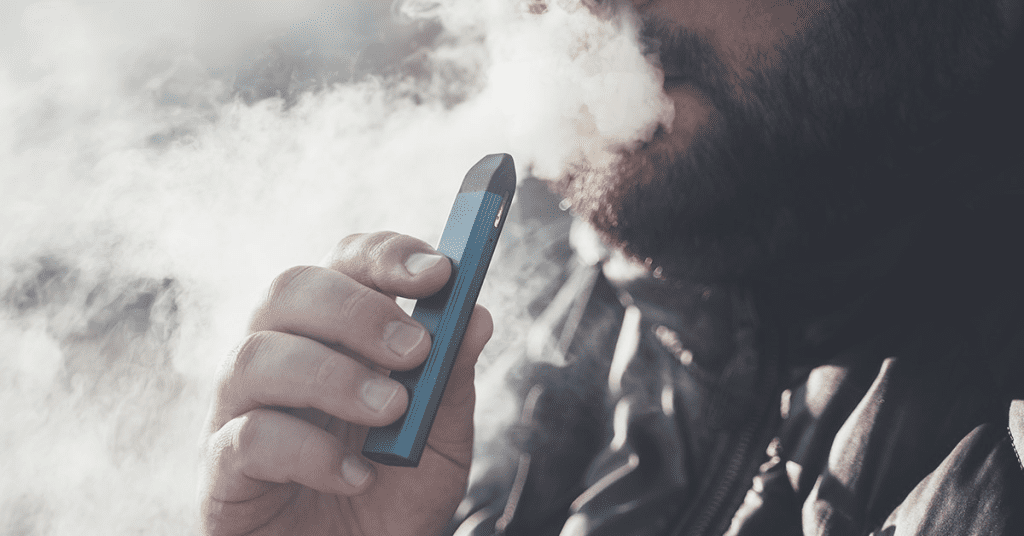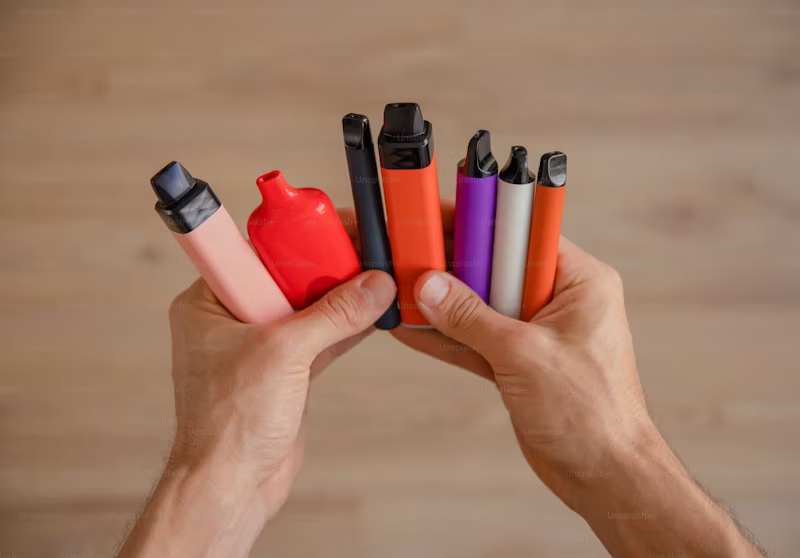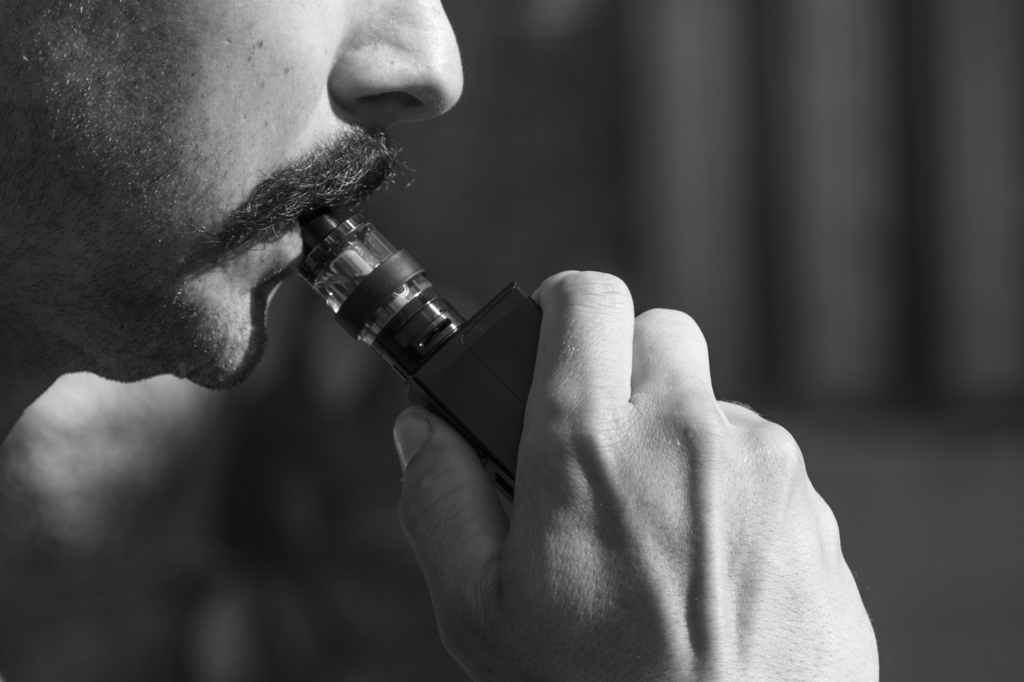Vaping has quickly risen in popularity, with millions worldwide turning to e-cigarettes as a “healthier” alternative to smoking. However, recent research and startling simulations reveal a different story. While many believe that vaping is less harmful than traditional smoking, the reality is that it carries significant health risks. A new simulation showcases exactly what happens to your body when you inhale vape smoke, exposing the dangers hidden in every puff. Let’s break down the real impact of vaping and why it’s not as safe as it seems.
The Rise of Vaping: A False Sense of Safety

Over the past decade, vaping has become especially popular among younger generations. What was initially marketed as a safer option to quit smoking has now been shown to come with its own set of dangers. Unlike cigarettes, vapes use a battery-powered heating element to vaporize a liquid containing nicotine, flavorings, and other chemicals. While this process may seem less harmful than burning tobacco, the chemicals released in vape smoke can have severe effects on your health.
A Shocking Simulation: Vaping’s Impact on the Lungs
One of the most alarming findings comes from a simulation that visualizes the effects of vaping on the lungs. When you inhale vape smoke, chemicals such as diacetyl—commonly found in flavored e-liquids—can cause significant lung damage. This particular chemical is linked to bronchiolitis obliterans, a condition more commonly known as “popcorn lung.” This chronic disease scars and thickens the airways, making it difficult to breathe.
The simulation demonstrates how inhaled toxins and mucus buildup damage the alveoli, the tiny sacs in your lungs responsible for oxygen exchange. Over time, this damage reduces lung capacity and can lead to permanent breathing difficulties.
Chemical Cocktail in Every Puff
Vape liquid isn’t just nicotine—it’s a mix of chemicals that aren’t always well-regulated. Ingredients such as propylene glycol and vegetable glycerin are commonly used in food products, but when vaporized and inhaled, their effects on the lungs are largely unknown.
A study from 2015 found that 39 out of 51 e-liquid flavors tested contained diacetyl, which is notorious for causing severe lung damage. The heating process in vapes can alter the chemical structure of these ingredients, making them far more dangerous than they appear on the surface. The result is a harmful chemical cocktail that users inhale with every puff.
How Vaping Affects Your Lungs
Your lungs rely on cilia, tiny hair-like structures, to keep bacteria and debris out of your airways. Vaping has been shown to paralyze these cilia, reducing their ability to protect your lungs from infections. This paralysis can last for weeks, leaving your respiratory system more vulnerable to infections, inflammation, and damage. Over time, this can lead to chronic lung diseases and a weakened immune response.
The Risk of EVALI: Vaping-Related Lung Injury

One of the most well-known dangers of vaping is E-Cigarette or Vaping-Associated Lung Injury (EVALI). In 2019, over 1,600 cases of EVALI were reported in the U.S., with 34 deaths. Many of these cases were linked to black-market THC cartridges containing vitamin E acetate, a substance that severely damages lung tissue.
However, even regulated vaping liquids can cause lung inflammation and damage. EVALI is a stark reminder that vaping isn’t as harmless as once thought, and even those using legal, well-known brands may still be putting their health at risk.
The Hidden Dangers of Vape Cartridges
It’s easy to overlook what’s inside a vape cartridge beyond the e-liquid. Disposable vapes contain harmful components like lithium batteries, plastic parts, and heating elements, which can pose environmental and health hazards. When improperly disposed of, these materials contribute to electronic waste, making vaping a problem not just for your body but for the environment too.
Dangerous Additives and Drug Contaminants

A growing concern in the vaping community is the rise of unregulated or counterfeit vape products. Some of these products contain dangerous synthetic drugs or contaminants. For example, a recent incident in London saw five teenagers hospitalized after vaping liquids laced with “spice,” a synthetic drug known for its dangerous side effects.
These counterfeit products pose severe health risks, including seizures, psychosis, and long-term mental and physical health issues. Without strict regulation, users have no way of knowing what dangerous substances might be lurking in their vape pens.
Why Quitting Vaping Is Essential
Given the growing evidence of vaping’s dangers, quitting is critical for safeguarding your long-term health. Nicotine addiction, a common problem among vapers, can make quitting difficult. Withdrawal symptoms such as irritability, anxiety, and insomnia often accompany attempts to stop using nicotine.
Thankfully, there are resources available to help. Nicotine replacement therapy, counseling, and support groups can be highly effective in helping individuals quit vaping. Early intervention can reduce the risk of lung damage, heart disease, and other serious health complications that may arise from continued vape use.
Vaping Is Not Harmless

While vaping was once hailed as a safer alternative to smoking, recent findings suggest that it carries its own set of health risks. From the harmful chemicals in every puff to the risk of chronic lung disease and exposure to dangerous additives, vaping is far from harmless. The convenience and flavor options that attract users to vaping come with hidden dangers that could lead to long-term health consequences.
If you or someone you know vapes, it’s time to reconsider the habit. The evidence is clear: vaping can cause serious harm to your body, particularly your lungs. Quitting now can protect you from further damage and improve your overall health and well-being.
Conclusion: Time to Rethink Vaping
The alarming findings from recent simulations and studies serve as a wake-up call to those who believe vaping is a safe alternative to smoking. The truth is, every puff of a vape delivers a mix of chemicals that can wreak havoc on your lungs and overall health. Whether it’s the threat of popcorn lung, EVALI, or exposure to dangerous additives, the risks associated with vaping are far too great to ignore.
For those already using vapes, quitting is the best option to safeguard your health. With the right support and resources, you can break free from nicotine addiction and avoid the dangerous health effects of vaping.


